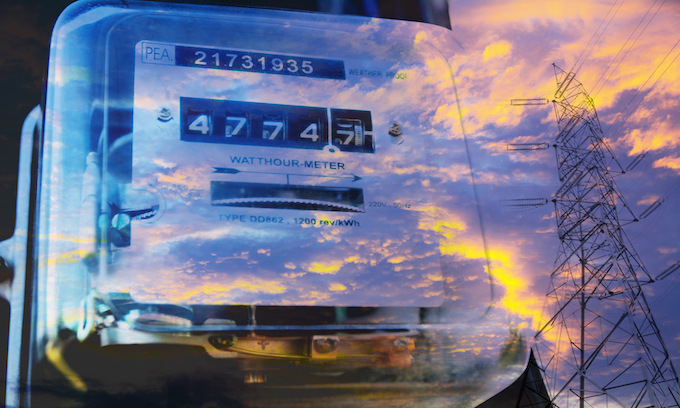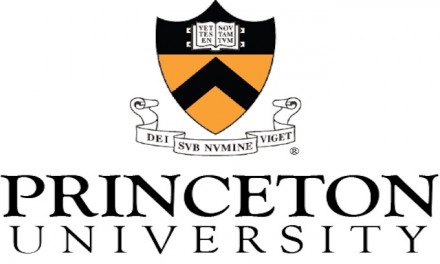Three of California’s largest electricity providers are proposing a new billing system that would charge customers according to their income.
Pacific Gas and Electric (PG&E), Southern California Edison, and San Diego Gas and Electric submitted a joint application to the California Public Utilities Commission (CPUC) April 10.
“This proposal aims to help lower bills for those who need it most and improves billing transparency and predictability for all customers,” said Marlene Santos, executive vice president for PG&E, in a statement.
The program, if approved, would divide customer utility bills into a fixed infrastructure charge based on income plus a usage charge based on consumption.
The per-kilowatt hour electricity rate would be lowered by about one-third for all customers, according to the companies.
Low-income and disadvantaged customers—about 30 percent of customers—would be helped the most with the new program, according to PG&E. The proposal calls for the monthly fixed charge for low-income customers to be as low as $15, and no greater than $30.
On average, PG&E estimates the company’s lowest-income customers would get a 21 percent lower electricity bill.
Moderate-income households would pay a fixed charge of $51 and get about 6 percent lower bills.
High-income customers—the state’s top 25 percent of income earners—would pay about $92, seeing an increase of about 24 percent, according to PG&E.
“As California rapidly advances to a future of electrification, this proposal will help to limit the impact on disadvantaged communities, as Californians transition to electrification in support of the state’s clean energy goals,” Santos said.
The state’s aggressive climate action plans include switching over to renewable energy sources and drastically cutting fossil fuels by 2045. One major component of the state’s climate goals is to accelerate electric vehicle use by banning the sale of gas-powered cars by 2035.
The utilities were required by the state to create a new billing plan after the state’s Legislature passed Assembly Bill 205 (AB 205) in June 2022.
The law requires utilities to structure their billing programs using income levels and provides state funding to help utility customers with past due bills from the pandemic, according to a Senate analysis.
The measure also mandates state agencies to prioritize clean energy sources over fossil fuel sources and accelerates clean energy projects.
When signing AB 205 in June 2022, California Gov. Gavin Newsom said the law will also help stabilize the energy grid by creating a “strategic reserve” that will only be used in the case of extreme weather events.
“Action is needed now to maintain reliable energy service as the State accelerates the transition to clean energy,” Newsom said in a letter.
To implement the low-income program for customers, electricity companies will need credible information about household income, according to a report issued by the University of California-Berkeley and the Energy Institute at Haas called “Ensuring Affordability for California’s Electricity Customers.”
The report suggests allowing government agencies, such as the Franchise Tax Board and the U.S. Census, to share personal data with the utilities.
Customers can leave comments for the CPUC about the proposed fixed-charge rate program on the commission’s website. So far, the commission has only received two.
In one comment, Sherry Listgarten of Palo Alto said the program would not do enough to stop rising costs, especially with renewable energy sources.
“Finally we are ditching net metering for net billing, but this ruling does not do nearly enough to stop the cost shift, which is enormous and getting bigger every time more solar is installed,” Listgarten said Nov. 23, 2020. “It is grossly unfair to low-income and renters. There needs to be very clear guidance from this proceeding … about the problem we are looking to be solved, for example by creating a substantial fixed charge.”
The CPUC is expected to make its decision on the program by July 2024, commission spokesperson Terrie Prosper told The Epoch Times.
This will establish the general structure of the income-graduated fixed charge, program guidelines, and details about the income-verification process, Prosper said.
Meanwhile, utilities will provide testimony to the commission June 2 and then work together to provide recommendations and issue a management statement by July 14. If needed, hearings will be held to gather more information, Prosper said.



















Wonder how reparations will affect the income figure.
OR income from drug sales etc.. since they don’t GET W2s for that!
Just another reason for a National Constitutional Ammendment long over due, to make it illegal to discriminate against people based on income, or ability to succeed to the point where they can actually have a surplus in wealth creation that can be shared HONESTLY with others, rather than the current government policies that discourage wealth creation and reward dishonest wealth consumers and consumption. MAHA,,,,,Make American Honest Again. How much people earn should be between them and their God. If you worshinp government then by all means pay through the nose. The criminals will just hide their incomes like the money laundering Bidens and pay no taxes whatsoever.
Just another reason for a National Constitutional Ammendment
You talking about a constitutional convention? I wonder how much you know about what could happen with that.
These articles are a little old but still apply.
https://www.cbpp.org/research/states-likely-could-not-control-constitutional-convention-on-balanced-budget-amendment-or
https://defendourconstitution.org/resource/legal-scholars-warn-of-the-dangers-of-an-article-v-convention/
THE LEFT ALREADY cares not what our constitution says.. Just look at all the laws AGAINST The 1st and 2nd amendment they’ve kept pushing through.
SO What makes you think if this somehow became a new amendment, THEY WOULDN’T JUST IGNORE IT TOO??
If there are any sane people left in Calimexifornia aka the land of fruits, nuts and flakes you need to get out of that Communist cesspool as fast as you possibly can!
STAY AND FIGHT. ITS because Conservatives keep FLEEING, leaving just demon-rats there, THAT IS WHY They are able to push through stupid laws like this.
“STAY AND FIGHT”????
I went to school at North Island Naval Base for about a year. I learned that the the things in California are subjective fools!
I was happy when I was allowed to get out of California.
These Democrats see everything as subjective, how they feel things should be (not as they are) their whole world is subjective.
Not Objective.
To the Democrat Party cult and their cult members, Gender, Truth, Facts, Reality and History are all irrelevant, if the Democrats do not WANT to believe them or they disagree with them. These Democrats will just make up their own, Gender, Truth, Facts, Reality and History to fit what they WANT to believe or fits into the Con or Deception that they are running at the time.
Hey Democrat voters! Way to go. Great job! Keep electing Democrats and they WILL come for you next. Oh, wait a minute! They’re already coming for you, but you are sooooooo utterly stupid, you don’t even begin to see it. Dem voters, so embarrassingly dumb.
Another Socialist idea waiting to spring into action. NO THANKS !
Somebody still has to pay the electric bill. Free to low cost housing, free phones, free internet ,free food ,free healthcare now free electricity. Is there anything they will pay from ??